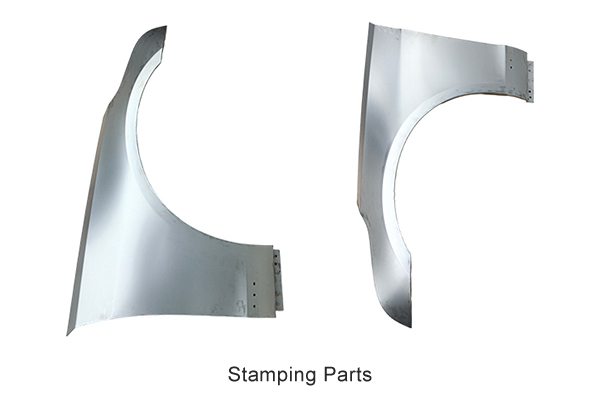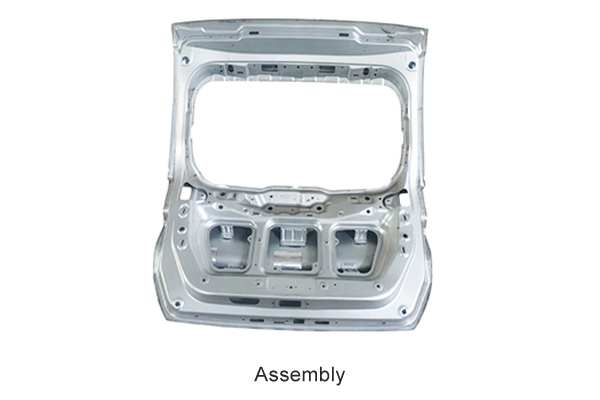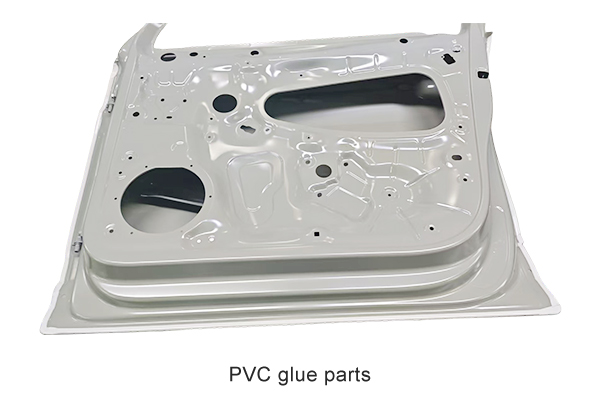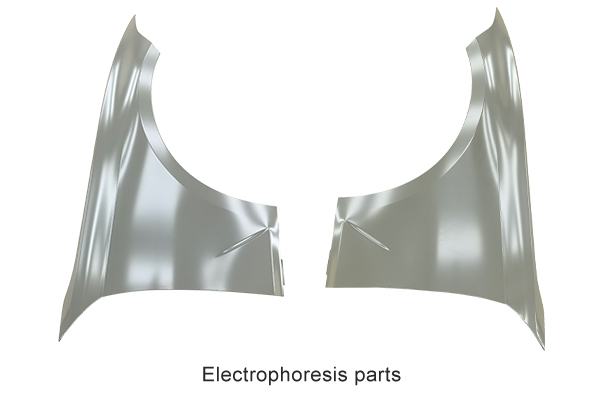What specific measures does the automotive PVC coating production service take in terms of corrosion prevention?
Release Time : 2025-04-28
As an indispensable means of transportation in daily life, cars are exposed to various harsh environments for a long time, such as rain, salt spray, ultraviolet rays, etc., which can easily cause rust and corrosion of metal parts of the car body. In order to effectively prevent these problems, automobile manufacturers and maintenance experts widely use PVC (polyvinyl chloride) coating technology to protect vehicles.
1. Basic principles and characteristics of PVC coating production service
Chemical stability: PVC is a high molecular polymer with excellent chemical stability and weather resistance. It can resist the erosion of a variety of chemicals, including acid rain, industrial waste gas and salt in seawater. This property makes PVC coating production service an ideal anti-corrosion material, especially suitable for coastal areas or road environments where snow melting agents are used in winter.
Physical barrier effect: PVC coating production service forms a strong and continuous protective film covering the surface of the car body, effectively isolating the direct contact between air, moisture and other corrosive media and the metal surface. This physical barrier significantly reduces the probability of oxidation reactions, thereby delaying the corrosion process of metal parts.
Flexibility and impact resistance: In addition to providing good protection, PVC coating production service also has a certain degree of flexibility and elasticity, which can absorb external impact to a certain extent and avoid damage to the paint surface caused by small stones or other minor collisions. This feature is particularly important for parts that are vulnerable to impact, such as the chassis and wheel arches.
2. Application of PVC coating production service in different parts and anti-corrosion measures
Body bottom: The bottom of the vehicle is one of the most susceptible parts of the vehicle to corrosion, because it is often exposed to corrosive substances such as mud, water, sand and road snow melting agents. PVC coating production service can be evenly sprayed on the entire chassis area to form a thick and tough protective layer. This coating is not only waterproof and dustproof, but also effectively resists salt spray erosion, greatly extending the service life of the chassis.
Inside the wheel arch: The inside of the wheel arch also faces challenges from road splashes, especially mud and gravel. PVC coating production service here not only plays an anti-corrosion role, but also reduces noise and enhances sound insulation. By applying PVC coating production service on the inside of the wheel arch, it can effectively prevent mud and sand from embedding in the gap to cause rust, and reduce the noise interference generated by the rolling of the tire.
Door edges and seams: Door edges and body seams are prone to water accumulation due to aging of sealing strips, which in turn causes local corrosion. PVC coating production service can form an additional waterproof layer at these key locations to prevent water from penetrating into the internal structure of the body. At the same time, the coating can also fill tiny gaps to further improve the sealing performance of the entire vehicle.
Inside the engine compartment: The temperature in the engine compartment changes dramatically and contains a large amount of oil and chemicals, which poses a serious threat to metal parts. PVC coating production service can maintain stable physical and chemical properties under high temperature conditions through special formula design, providing lasting protection for key components in the engine compartment.
3. PVC coating production service construction process and quality control
Pretreatment process: Before the PVC coating production service is applied, the body surface must be thoroughly cleaned and polished to remove oil, rust and other impurities to ensure that the coating can be firmly attached to the substrate. In addition, it is necessary to select a suitable primer or phosphating treatment according to the specific situation to enhance the bonding between the coating and the substrate.
Coating thickness control: The thickness of PVC coating production service directly affects its anti-corrosion effect. Too thin may lead to insufficient protection, while too thick may affect the appearance quality and increase costs. Therefore, in actual operation, the coating thickness needs to be precisely controlled. It is usually recommended that the coating thickness of the bottom of the vehicle body is about 0.5-1 mm, while other parts can be adjusted appropriately according to specific needs.
Drying and curing process: After the coating is completed, the vehicle needs to be sent to a special oven for drying and curing. Appropriate temperature and time settings help promote the full cross-linking reaction of the PVC coating production service to form a dense protective film. In general, the drying temperature should be controlled between 150℃ and 200℃, and the duration is 20-30 minutes.
4. Maintenance and care of PVC coating production service
Regular cleaning: Although PVC coating production service has strong self-cleaning ability, it still needs to be cleaned regularly, especially after passing through muddy roads or rainy and snowy weather. Use a mild neutral detergent with a soft brush to wipe gently, and avoid using strong alkaline or acidic detergents to avoid damaging the coating surface.
Inspection and repair: During long-term use, pay attention to whether the PVC coating is damaged or peeling. Once a problem is found, it should be repaired in time to prevent the exposed metal parts from being exposed and accelerating the corrosion process. There are products on the market specifically for repairing PVC coatings. Users can do it themselves or seek professional help according to the actual situation.
As an efficient and reliable anti-corrosion method, PVC coating production service plays an important role in improving the durability and aesthetics of vehicles. By reasonably selecting materials, optimizing construction processes and strengthening post-maintenance, the anti-corrosion advantages of PVC coatings can be maximized, the service life of vehicles can be extended and maintenance costs can be reduced.
1. Basic principles and characteristics of PVC coating production service
Chemical stability: PVC is a high molecular polymer with excellent chemical stability and weather resistance. It can resist the erosion of a variety of chemicals, including acid rain, industrial waste gas and salt in seawater. This property makes PVC coating production service an ideal anti-corrosion material, especially suitable for coastal areas or road environments where snow melting agents are used in winter.
Physical barrier effect: PVC coating production service forms a strong and continuous protective film covering the surface of the car body, effectively isolating the direct contact between air, moisture and other corrosive media and the metal surface. This physical barrier significantly reduces the probability of oxidation reactions, thereby delaying the corrosion process of metal parts.
Flexibility and impact resistance: In addition to providing good protection, PVC coating production service also has a certain degree of flexibility and elasticity, which can absorb external impact to a certain extent and avoid damage to the paint surface caused by small stones or other minor collisions. This feature is particularly important for parts that are vulnerable to impact, such as the chassis and wheel arches.
2. Application of PVC coating production service in different parts and anti-corrosion measures
Body bottom: The bottom of the vehicle is one of the most susceptible parts of the vehicle to corrosion, because it is often exposed to corrosive substances such as mud, water, sand and road snow melting agents. PVC coating production service can be evenly sprayed on the entire chassis area to form a thick and tough protective layer. This coating is not only waterproof and dustproof, but also effectively resists salt spray erosion, greatly extending the service life of the chassis.
Inside the wheel arch: The inside of the wheel arch also faces challenges from road splashes, especially mud and gravel. PVC coating production service here not only plays an anti-corrosion role, but also reduces noise and enhances sound insulation. By applying PVC coating production service on the inside of the wheel arch, it can effectively prevent mud and sand from embedding in the gap to cause rust, and reduce the noise interference generated by the rolling of the tire.
Door edges and seams: Door edges and body seams are prone to water accumulation due to aging of sealing strips, which in turn causes local corrosion. PVC coating production service can form an additional waterproof layer at these key locations to prevent water from penetrating into the internal structure of the body. At the same time, the coating can also fill tiny gaps to further improve the sealing performance of the entire vehicle.
Inside the engine compartment: The temperature in the engine compartment changes dramatically and contains a large amount of oil and chemicals, which poses a serious threat to metal parts. PVC coating production service can maintain stable physical and chemical properties under high temperature conditions through special formula design, providing lasting protection for key components in the engine compartment.
3. PVC coating production service construction process and quality control
Pretreatment process: Before the PVC coating production service is applied, the body surface must be thoroughly cleaned and polished to remove oil, rust and other impurities to ensure that the coating can be firmly attached to the substrate. In addition, it is necessary to select a suitable primer or phosphating treatment according to the specific situation to enhance the bonding between the coating and the substrate.
Coating thickness control: The thickness of PVC coating production service directly affects its anti-corrosion effect. Too thin may lead to insufficient protection, while too thick may affect the appearance quality and increase costs. Therefore, in actual operation, the coating thickness needs to be precisely controlled. It is usually recommended that the coating thickness of the bottom of the vehicle body is about 0.5-1 mm, while other parts can be adjusted appropriately according to specific needs.
Drying and curing process: After the coating is completed, the vehicle needs to be sent to a special oven for drying and curing. Appropriate temperature and time settings help promote the full cross-linking reaction of the PVC coating production service to form a dense protective film. In general, the drying temperature should be controlled between 150℃ and 200℃, and the duration is 20-30 minutes.
4. Maintenance and care of PVC coating production service
Regular cleaning: Although PVC coating production service has strong self-cleaning ability, it still needs to be cleaned regularly, especially after passing through muddy roads or rainy and snowy weather. Use a mild neutral detergent with a soft brush to wipe gently, and avoid using strong alkaline or acidic detergents to avoid damaging the coating surface.
Inspection and repair: During long-term use, pay attention to whether the PVC coating is damaged or peeling. Once a problem is found, it should be repaired in time to prevent the exposed metal parts from being exposed and accelerating the corrosion process. There are products on the market specifically for repairing PVC coatings. Users can do it themselves or seek professional help according to the actual situation.
As an efficient and reliable anti-corrosion method, PVC coating production service plays an important role in improving the durability and aesthetics of vehicles. By reasonably selecting materials, optimizing construction processes and strengthening post-maintenance, the anti-corrosion advantages of PVC coatings can be maximized, the service life of vehicles can be extended and maintenance costs can be reduced.








